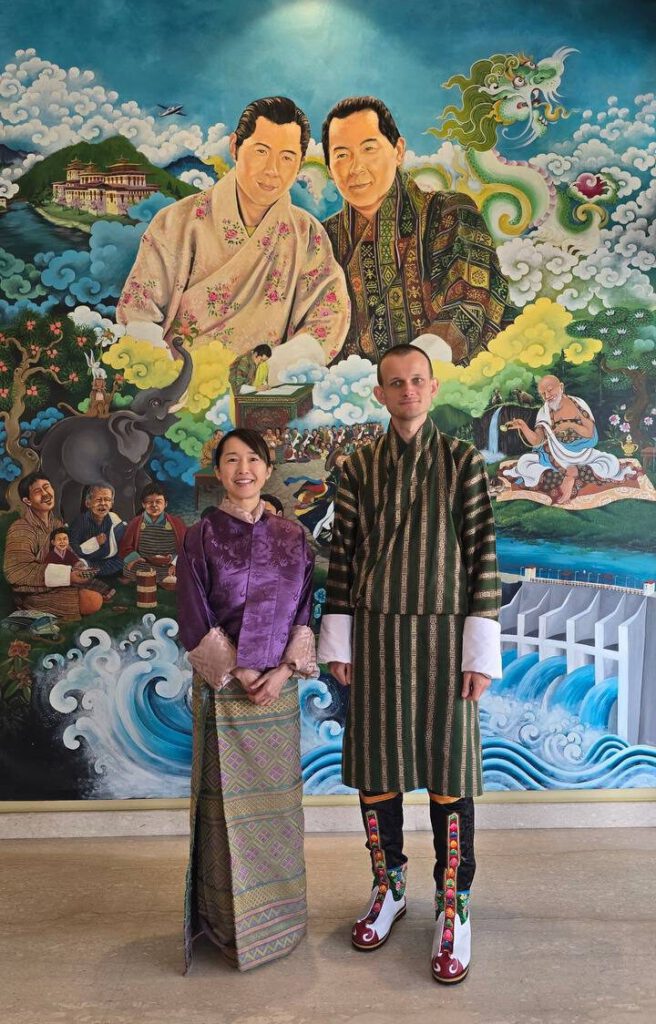
The applications of blockchains are advancing rapidly worldwide. Now the small kingdom of Bhutan is showing Switzerland how easy E-ID can be.
How can a country that is largely located high up in the Himalayas catapult itself into the modern age?
The only country in the world that is already climate neutral is simply relying on the crypto world for its population register.
From Polygon to Ethereum
Bhutan’s population of less than 1 million is currently celebrating the fact that the digital population register is being implemented on the Ethereum blockchain.
Not only the Ethereum Foundation in Switzerland, led by Vitalik Buterin, but also the tiny South Asian country is celebrating this on Twitter and social media.
The digital population register had already been planned on the Polygon blockchain with Hyperledger Indy. However, it quickly reached its limits in terms of scalability and security.
With the second-largest blockchain after Bitcoin, the possibilities are greater, according to the launch in the capital Thimphu.
Modern society in the mountains
The digital identification system does not assume that the state issues ID cards and uses them to identify its citizens.

Rather, the idea is that modern society is validated by self-sovereign identity (SSI).
Citizens own their own data and manage it independently.
Nothing is forgotten
Driver’s licenses, training certificates, and health certificates are stored in digital wallets on the blockchain, and the residents of Bhutan own them.
Citizens decide for themselves which data is transferred when they contact the state. Cryptographic controls enable authentication without revealing the actual data. This is a big advantage that is becoming increasingly popular.
During traffic checks, driver’s licenses are practically never forgotten anymore.
King as first digital citizen
Bhutan is not only focusing on mining Bitcoin & Co. with renewable energies. It is also developing society further and using modern crypto technologies.
In doing so, the kingdom is also making itself more independent from cyber attacks, as its citizens’ data is not stored on a server but is safely distributed across a secure blockchain.
His Majesty the Druk Gyalpo, who descended from the Wangchuck dynasty, became Bhutan’s first digital resident. By 2026, all citizens will be on the Ethereum blockchain.
Outside the financial system
Switzerland can only marvel at such developments.
There were lengthy discussions and a close vote recently on the introduction of an E-ID and the management of personal data by the Swiss government.
The Australian Government tried and failed this strategy years ago.
With state-of-the-art blockchain technology, such issues can be elegantly resolved without compromising security, anonymity, or control options.
Bhutan is virtually ahead of Switzerland. And it’s not even about their financial system.
10/14/2025/kut./ena.




